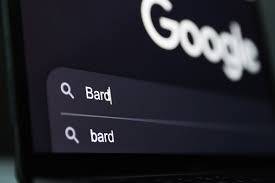Bard, Google's AI-powered Chatbot, is slowly getting better at tasks that involve logic and reasoning. That is according to a blog post published today by the tech giant, which suggests that - thanks to a process called “implicit code execution” - Bard now has more specific areas of mathematics and privacy.As the blog post explains, major language models (LLMs) like Bard are actually prediction engines. When prompted, they generate responses by anticipating the words that might come next in a sentence. This makes them great email and script writers, but software developers are prone to mistakes.But wait, you might say, What about code generation templates like GitHub's Copilot and Amazon's CodeWhisperer? Well, these are not general purposes. Unlike Bard and its competitors ChatGPT, who are trained using different types of text from the web, e-books, and more, Copilot, CodeWhisperer, and create code types that are trained and refined almost exclusively in code. example. Motivated to fill the coding and math gap in general LLMs, Google created Implicit Code Execution, which allows Bards to write and execute their own code.
The latest version of Bard identifies stimuli that can benefit from logical code, writes the code "under the hood", tests it, and uses the results to generate more accurate feedback. Based on internal benchmarks, Google reports that the new Bard's answers to “computation-based” word and math problems have improved by 30% over previous Bard versions. Of course, we will see if these claims are supported by external tests. compare that well with the likes of Bing Chat and ChatGPT. Of course, the move was a bit of a disaster, with Google's ad showing Bard's negative response - sending the company's shares down briefly by 8%. Several Google users who tested Bard before its release reportedly raised serious concerns with the giant search engine, with one calling it a "pathological liar" and another taking it as such “worse than useless.” With clear code generation and other improvements, such as support for new languages, multimodal queries, and image generation, Google is responding to criticism and trying to turn things around. Whether this will be enough to keep up with the leading AI chatbots in the space remains to be seen. Recently, Anthropic introduced an AI chatbot with a very wide “context window,”, which allows the model to chat for hours or even days, instead of minutes. And OpenAI, the developer behind ChatGPT, has started supporting plugins that make ChatGPT smarter and more external.

“Even with these improvements, Bard won’t always get it right — for example, Bard might not generate code to help the prompt response, the code it generates might be wrong or Bard may not include the executed code in its response,” Bard product lead Jack Krawczyk and VP of engineering Amarnag Subramanya wrote in the blog post. “With all that said, this improved ability to respond with structured, logic-driven capabilities is an important step toward making Bard even more helpful.”




